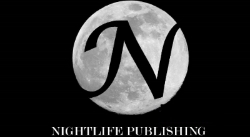Recent events concerning
the Great
Erotica Purge of 2013 and subsequent discussions online have
raised various issues for publishers. Independent publishers are even more
sensitive to these developments because their books seem to be under more scrutiny. Other
creative mediums have faced similar issues and have responded in different
ways over the years, but one of the major responses has been the idea of informed notice.
Is this response applicable to publishing? What are the benefits and drawbacks
of this kind of warning? I'll take a look at this idea and the way that it
applies to my own books.
Ratings, Labels and
Codes
It's not hard to find
examples of entertainment regulation in American media. The film industry has the MPAA that assigns
ratings based on content determined to be adult (i.e sexual). Television has a similar
system, so do graphic novels and video games. Music doesn't have a rating
system, but it does have the explicit content stickers for albums with
"objectionable" lyrics. In addition, certain songs are recorded twice; once in its
original form and once in a sanitized "radio friendly" version.
Novels and theater seems to be the only form of mass entertainment that doesn't have
some kind of early warning system. I can't speak to the theatrical experience,
but that kind of system could have a definite impact on the selling and reading
of books.
Acceptance and Rejection
There are two potential
benefits to placing explicit content labels on books:
- Informed readers: potential customers will have a better idea of what they are getting. Readers who are more sensitive to sexual content (because the vast majority of backlash in any media with regards to content involves sex (See Erotica as a Literary Pariah) can avoid titles without the need to interpret the cover or book blurb.
- Increasing cross genre pollination: while some readers avoid stories with sexual content, others specifically seek that material out. Stories with this kind of content that don't fit into the erotica genre can have an easier time finding readers and sales if readers know that in their historical fiction or space opera they might also find erotic themes. Mainstream readers can dabble in other styles and authors can add erotic concepts to their stories without the need to categorize themselves or their work as erotic if they don't want to.
There are four potential drawbacks to book labeling:
- Lack of surprise: if a reader knows that sexual content is inevitable, then surprise is replaced by anticipation. Subconsciously, they could be looking for the characters or situations that will lead to the sex scene instead of experiencing the story organically. There might not be an inherent problem with this. Anticipation can keep a reader turning pages and pull them more into a story. But if you want the element of surprise, the warning label takes that away.
- Summary rejection: some readers will refuse to read a book if they know there is sexual content up front. The context, treatment and craft of the writer isn't considered. A reader who might otherwise be willing to accept and enjoy a well written scene that evolves naturally may never experience the story because of a prejudicial judgment based on the warning label.
- Ease of purge: Online distributors recently removed huge portions of their self-published catalog because of complaints revolving around sexual content. The purge appears to be over as books are being restored, but some of those books will never go back up. If there is going to be another purge or ban, an explicit content label could be a bull’s-eye painted on your book cover, regardless of the type of content in your story.
- Creative retreat: some authors might be willing to insert sexual themes in their non-erotic work if they can be placed quietly inside the rest of the narrative. If there was some kind of obligation to announce sexual content up front, some authors might alter their stories or change their writing style completely to avoid the scrutiny that might come with that disclosure. The label would have a chilling effect on the craft.
After weighing the pros and cons, I've decided to try and put warning labels on my next novel, A Taste of Honey. Because the book is about criminal espionage, it might not be immediately clear that the book has sexual content (although some people will probably disagree with me). The way I see it, there is a benefit to attracting readers who like shows like Scandal. I also prefer to warn off people who are looking for a more traditional spy novel. There is still a chance that my book will be rejected out of hand by readers, but I'd rather have them not read it based on their own choice, rather than feeling like I tricked them.
What do you think? Are
you willing to put a warning label on your book? Would you avoid a book with a
warning label or would that make you more interested in the story. Please let
me know with a comment.
Have fun
Gamal
Gamal

